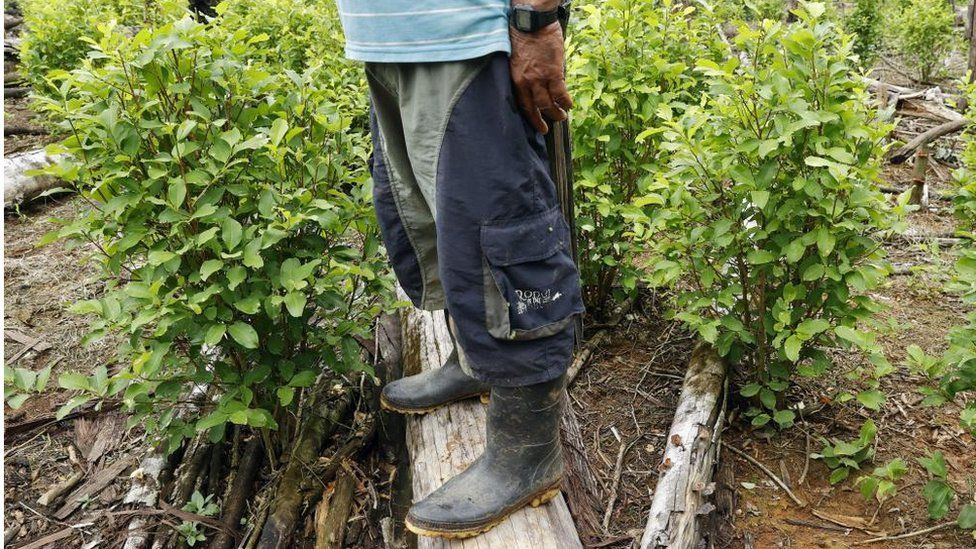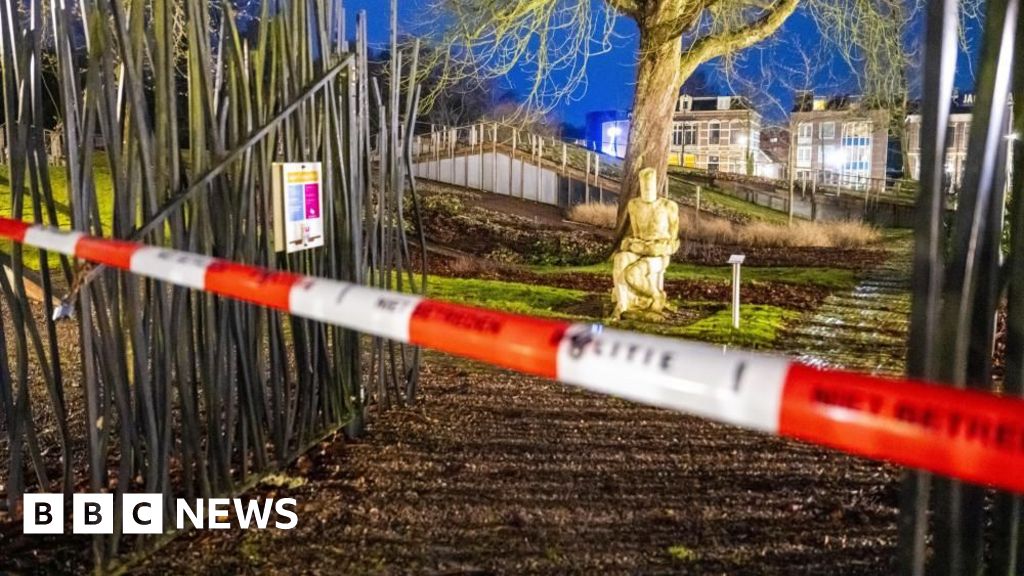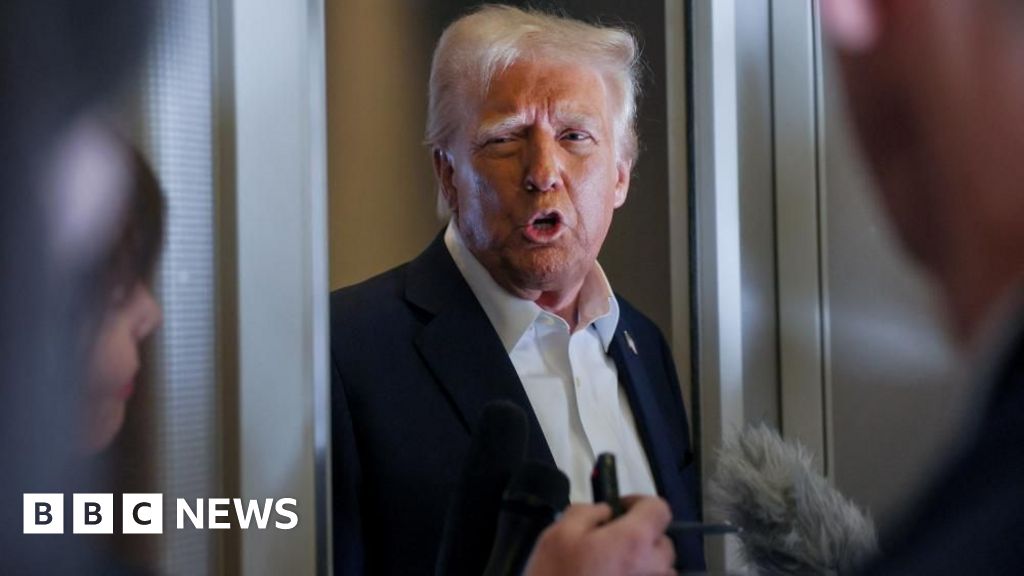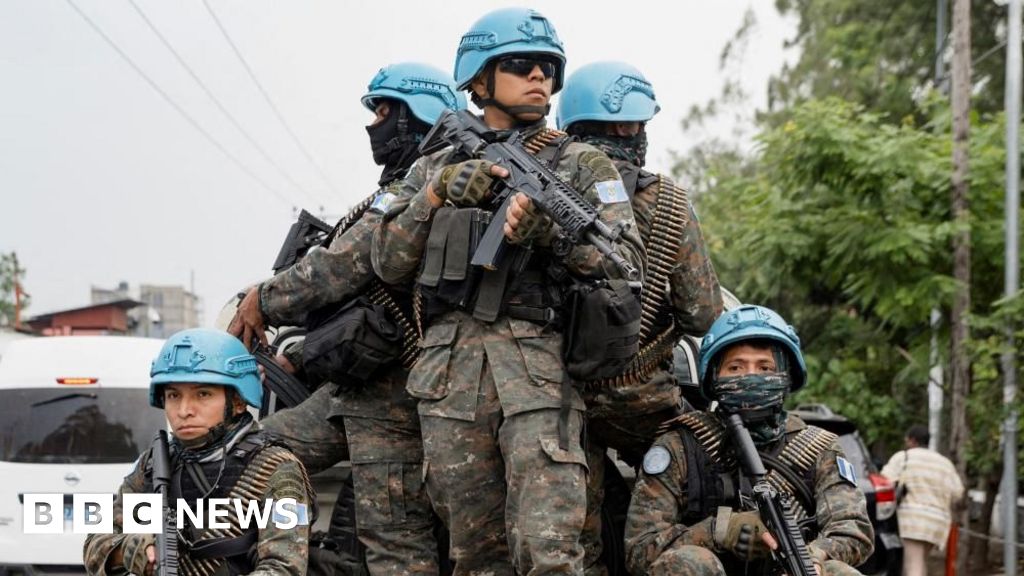ARTICLE AD BOX
 Image source, EPA
Image source, EPA
Forests have been cut down to make way for coca bushes
Colombia has increased its cultivation of coca plants - the main ingredient in cocaine - by 43%, a new report by the United Nations (UN) says.
Last year the area of coca cultivation expanded to a vast 204,000 hectares (504,100 acres). Colombia is already the world's largest cocaine producer.
It is the highest figure since the UN Office on Drugs and Crime (UNODC) began collecting such data in 2001.
Colombian President Gustavo Petro has called the war on drugs a failure.
Instead, the newly-elected left-wing leader wants to regulate the industry and expand programmes to substitute illegal crops, BBC South America correspondent Katy Watson reports.
Most of Colombia's cocaine heads to Europe and the United States, which is the world's largest consumer of the illicit drug.
For years Colombia has struggled to get farmers to move away from coca production, but promises to provide incentives and subsidies have not materialised, our correspondent says.
The UN report says the heaviest coca cultivation takes place in the North Santander department in the north-east of Colombia, and two departments in the south-west, on the Ecuador border - Nariño and Putumayo.
The Tibú municipality in North Santander, on the Venezuela border, has the highest level of coca cultivation of all of Colombia's municipalities - 22,000 hectares.
The crop is flourishing especially in areas near national borders or with easy access to the sea, the report says. In those regions, illegal armed gangs, drug traffickers and producers work together.
Threat to biodiversity
The UNODC says coca cultivation continues to threaten Colombia's biodiversity, contributing to deforestation. About half the coca plantations are in special land management zones, including forest reserves.
Aerial spraying to get rid of the crops was suspended in 2015 after a court ruled that the herbicide used - glyphosate - could cause cancer and pollute the land.
President Petro's predecessor Iván Duque strongly supported the US war on drugs. In 2020 former President Donald Trump told Colombia to resume aerial spraying.
But earlier this month, US Secretary of State Antony Blinken met Mr Petro in Colombia and said they shared "extensive common ground" on the coca problem.
"We strongly support the holistic approach the Petro administration is taking," Mr Blinken said.
"On both the enforcement side but also on the comprehensive approach to the problem... I think that we're largely in sync."
You may be interested in watching:
Viral TikToks show the lives of Colombia’s cocaine workers

 2 years ago
63
2 years ago
63








 English (US) ·
English (US) ·